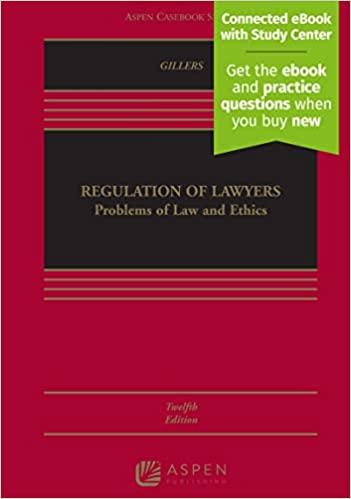Question
In the Supreme Court McDees Ltd v Khan Khan runs a fast food outlet under a franchise agreement with a firm called Burger Queen. The
In the Supreme Court
McDees Ltd
v
Khan
Khan runs a fast food outlet under a franchise agreement with a firm called Burger Queen. The franchise agreement is about to come to an end, and Khan approaches a representative of McDees Ltd, the rival of Burger Queen, with a view to reaching a new franchise agreement, for a five-year period, with McDees. McDees' representative, Ronny, tells Khan that McDees would like to have an outlet in Hendon, and Khan and Ronny commence negotiations.
When the negotiations are nearing completion, but before the parties have reached complete agreement, Burger Queen ask Khan if he will agree to renew his franchise contract with them. When Khan tells Ronny this, Ronny tells Khan that McDees are committed to the prospective contract with Khan, and that they will sign a contract "as soon as the technicalities are sorted out". Reassured by this, Khan informs Burger Queen that he does not wish to renew his contract with them. Burger Queen then grant a franchise to another outlet in the same area as that of Khan. A week later, Ronny tells Khan that McDees have changed their mind, and no longer want to grant Khan a franchise.
If Khan had operated as a McDees franchisee for five years, it is estimated that he would have made a profit of 200,000. If he had remained with Burger Queen, he would have made about 100,000. Operating independently, he will make only 50,000 net profit.
Confidently expecting a contract with McDees, Khan has spent 5000 on new logos for his shop which are of no use in the absence of a contract with McDees.
Khan concedes that his conversation with Ronny did not in itself give rise to a contract between Khan and McDees. Nevertheless, he sues McDees, claiming that because of his detrimental reliance on the promise of Ronny (a) McDees is estopped from denying that a contract came into existence or (b) McDees' promise is otherwise actionable.
Hamilton J finds in favour of Khan, relying on Combe v Combe [1951] 2 KB 215, and awards him damages of 150,000.
The Court of Appeal dismissed McDees' appeal. McDees now appeal to the Supreme Court on the grounds that:
1. Khan cannot rely on the doctrine of estoppel, because there was no pre-existing contractual relationship between McDees and Khan, and estoppel can only be used as a shield, and not as a sword.
How Khan can use promissory Estoppel to dismiss McDees appeal?
(this is a fictitious case)
Step by Step Solution
There are 3 Steps involved in it
Step: 1

Get Instant Access to Expert-Tailored Solutions
See step-by-step solutions with expert insights and AI powered tools for academic success
Step: 2

Step: 3

Ace Your Homework with AI
Get the answers you need in no time with our AI-driven, step-by-step assistance
Get Started


